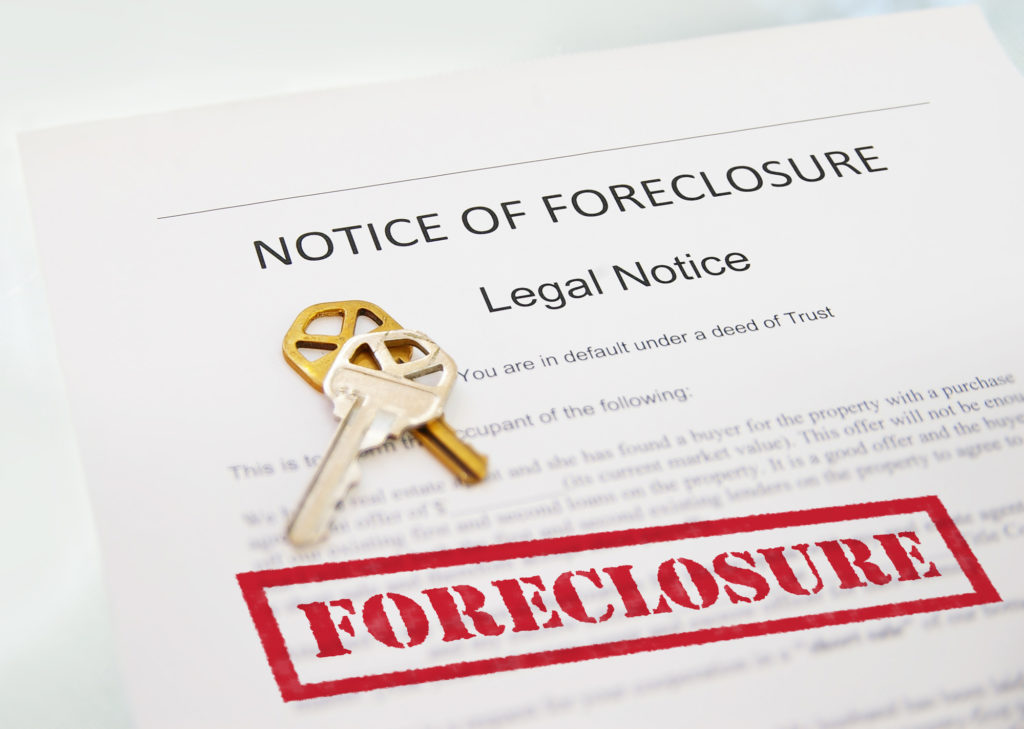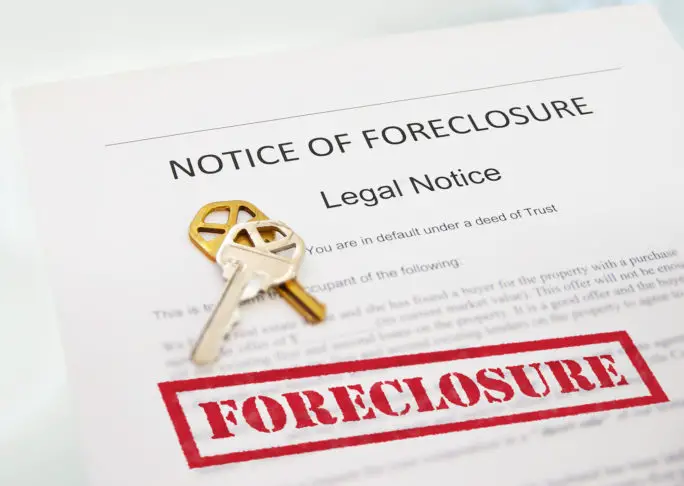A Foreclosure is a legal action that occurs when someone hasn’t paid their mortgage and the lender takes control of the property. This form of debt collection can have a devastating effect on a person’s credit score, making it hard for them to get loans, rental agreements, and even regular credit cards.
A foreclosure can remain on someone’s credit report for up to 7 years, making them unable to access better deals on loans and credit products. This hinders their ability to rebuild their credit score.
To improve your credit score, you can have a foreclosure removed from your credit report. This can make it more likely that you’ll be approved for loans and additional credit in the future.
This article will explain how to erase a foreclosure from your credit file. We’ll go over the steps involved in challenging the foreclosure with credit bureaus, what you must do to rebuild your credit after a foreclosure and what to consider when deciding on the right approach.
Knowing how to remove a foreclosure from your credit report is the first step towards improving your credit score and reaching your financial goals.

Understanding Foreclosures
Explanation of the Foreclosure Process
When borrowers default on their mortgage payments, foreclosure is the legal process in which the lender repossesses the property.
The foreclosure process usually starts with a default notification, which informs the borrower that they are behind on their mortgage payments and must make up for them or face the possibility of foreclosure. If no action is taken, the lender can move forward with foreclosure proceedings.
The Impact of Foreclosures on Credit
The aftermath of a foreclosure can stay on your credit report for up to seven years and cause your credit score to plummet by up to 200 points. This can make it hard for someone to secure a loan, rent an apartment, or get any sort of credit afterwards.
Legal Implications of Foreclosures
Depending on the state law, foreclosures may carry certain legal consequences.
In certain states, if a house is foreclosed on the homeowner may be responsible for the unpaid balance of the mortgage. This difference between the mortgage and sale price is known as a deficiency judgment.
A legal expert can advise on the consequences of foreclosing in different states, like if the lender is entitled to take the borrower’s other possessions or subtact from their salary.
Can I Get a Foreclosure Removed From My Credit Report?
Depending on the specifics of the foreclosure and the accuracy of the data in your credit report, it may be possible to have a foreclosure taken off your credit record.
Accurate foreclosure information on your credit report cannot be deleted until the waiting period for it to fall off the credit report is over, which generally is seven years from the initial delinquency that caused it.
If the credit report data is incorrect, you can dispute it with credit agencies and ask that they update it. That could mean correcting the date of foreclosure, the amount owed, or even removing a wrongly reported foreclosure from your credit report.
Remember, disputing a foreclosure with the credit bureaus can take several months and may require a lot of patience to see a change in your credit score.
It’s essential to back up your argument that the foreclosure is wrong or shouldn’t be on your credit report with as much proof as possible.
While there are credit repair services which promise to remove foreclosure from credit reports, these are generally scams and should be avoided. The best way to have a foreclosure removed from your credit report is by obtaining proof of inaccuracies and working with credit bureaus.
Removing a Foreclosure from Your Credit Report
Let’s discuss ways to dispute the inaccurate information on your credit file.
Disputing a Foreclosure with Credit Bureaus
The process for removing a foreclosure from your credit report begins with disputing the foreclosure with the credit bureaus. To do this, you will need to gather evidence to support your claim that the foreclosure is inaccurate or should not be on your credit report.
This may include copies of court documents, proof of completion of the foreclosure process, and any other relevant information that supports your case.
Gathering Evidence
When disputing a foreclosure with the credit bureaus, it’s important to be thorough and to provide as much evidence as possible. This can include copies of your mortgage documents, proof of payments made, and any correspondence between you and the lender.
If there were errors or inaccuracies in the foreclosure process, such as errors in the notice of default or the auction process, it’s important to provide documentation of these errors as well.
Outcomes of Disputing a Foreclosure
The credit bureau will investigate your claim, and if they find that the information on your credit report is inaccurate, they will correct it. However, not all disputes are successful, and the credit bureaus may not find in your favor.
Disputing a foreclosure with the credit bureaus will not remove it from your credit report, it can only address inaccuracies on the report. It’s important to note that disputing a foreclosure with the credit bureaus can be a time-consuming process, and it may take several months before you see any improvement on your credit score.
Re-establishing Credit After Foreclosure
Rebuilding Credit
When recovering from foreclosure, it is essential to focus on rebuilding your credit. Efforts may include obtaining a secured card, applying for loans at a credit
Ways to Boost Credit Score
To repair your credit after foreclosure, be sure to pay your bills on time, reduce your credit balances, and avoid applying for new credit. Additionally, it’s wise to routinely check your credit report for accuracy and make any necessary corrections.
The Benefits of Patience and Persistence
After a foreclosure, repairing your credit score takes time and patience. It’s essential to persistently work on improving your score and be patient for the results.
Even after a foreclosure, it is still possible to achieve a good credit score, although not a perfect one.
It’s important to remember that it’s not just the credit score that matters, but also credit history. Showing consistent good credit after a foreclosure can be beneficial for future applications, so focusing on both building a good credit report andCredit score can help when applying for new loans.
Factors to Consider
Age of the Foreclosure
How long ago the foreclosure happened is an important factor when deciding what to do. If it’s recently occurred, disputing it with the credit bureaus may be the best choice as it could have a positive effect on your credit rating.
If a foreclosure is from a few years ago, it might be best to wait for it to disappear from your credit report as the impact on your credit score will be less severe.
Type of Loan
Foreclosures can differ depending on the kind of loan taken out. Government-backed loans, such as FHA or VA mortgages, may involve different rules and timelines than a traditional loan.
Personal Financial Situation
Depending on your financial circumstances, the best course of action might vary. For instance, if you have a good income, a high credit score, and lots
Legal Ramifications
When facing foreclosure, it’s important to be aware of legal repercussions such as deficiency judgments. Working with a lawyer can help you to understand the specific legal implications associated with foreclosure in your state.
Costs Associated with Disputes
When deciding whether to dispute a foreclosure with the credit bureaus or paying for a credit repair service, you should consider the potential effects of removing the foreclosure from your report and compare it to the cost.
All things considered, you should factor in the age of the foreclosure, type of loan, financial status, and legal ramifications when deciding what to do. Furthermore, seeking advice from a qualified financial advisor or credit lawyer is a smart idea to determine your optimal course of action.
Is a Foreclosure Good for Credit Scores?
No, a foreclosure is not good for credit scores. A foreclosure can have a significant negative impact on a person’s credit score and credit report.
A foreclosure can seriously damage a person’s credit, causing their score to drop by up to 200 points and stay on their record for up to 7 years. This can have major consequences such as making it hard to get loans or rent a place.
Having a foreclosure on your credit report is regarded as a major lapse in payment and will determine how trustworthy you are to potential lenders.
Remember, a foreclosure has disastrous effects on your credit and it will take much work to recover from it.
With perseverance, your credit score will go up and you’ll have a greater chance of being approved for loans and credit in the future.
Conclusion
To sum up, foreclosures can have a large negative impact on your credit score and report. They will stay there for up to 7 years, possibly decreasing your credit down by 200 points. Nonetheless, you could remove the foreclosure if the information recorded is incorrect.
To dispute an incorrect foreclosure on your credit report, you must provide proof to the credit bureaus and submit a formal request for removal.
Even when you provide ample evidence, the credit bureaus may not rule in your favor. Still, it’s important to be as thorough as possible.
To build back credit after a foreclosure, be sure to pay your bills on time, keep your debt low, and avoid applying for too much new credit.
It’s essential to review your credit report on a regular basis to make sure the information is up-to-date and to handle any discrepancies you detect. Getting your credit score back on track after a foreclosure can take time and require patience.
When determining what to do, it is essential to consider aspects like the age of foreclosure, loan type, your financial health, legal implications and expenditure.
Additionally, it’s important to consult with a financial professional or a credit attorney to understand the best steps for you.
Remember that foreclosure has a damaging effect on your credit score, so rebuilding it will take hard work and time.
With patience and dedication, you can improve your credit score, enhancing your chances of loan and credit approval in the future.

